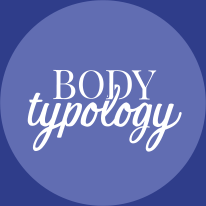Nutrition for depression, anxiety & burnout
Healthy nutrition for depression can help! I have helped many clients get off of their medication for depression, calm their anxiety and panic attacks and bounce back very quickly from burnout. Diet exercise and lifestyle changes can help enormously.
The main factors to consider are:
1. Blood sugar imbalance – Hypo and
hyperglycemia, upsets brain function. Hypoglycemia (Or low blood sugar)
is a major cause of behavioral problems in children. I suffered from
hypoglycemia for years, getting extremely irritable whenever a meal was
delayed. I am much more balanced now and I make sure to eat my meals on
time and carry snacks like trail mix along.
2. Lack of protein – Protein contains essential amino acids that in turn create neurotransmitters. These communicate information in our brain. This can also alleviate headaches, migraines and lead to more balanced energy throughout the day.
3. Lack of essential fatty acids – the brain is 60% fat, and good fats are critical for brain health
4. Vitamin and mineral deficiencies – A few specific vitamins that are important are B complex, which calms the nervous system, vitamin C that keeps the adrenal glands calm – our flight or fight glands, and along with other herbs can prevent burnout. Magnesium helps muscle relax. Copper and iron give us energy.
A diet that includes a lot of refined sugars upsets brain function, after the sugar high, the ensuing crash causes depression.
By changing your diet from one that contains a lot of refined carbohydrates, packaged, processed or fast foods, to one that is healthier, you can use these tips on nutrition for depression to greatly improve your emotional challenges.

4 Key things to implement regarding nutrition for depression:
1. Reduce sweets and refined carbohydrates,
as well as coffee and tea that continually spike up the glycemic levels
of the body, followed by the inevitable crash. This will help you have
more stable energy. When your energy is up and down all day, so is your
mood. It is essential to avoid sweets if you suffer from depression.
Increasing good quality whole grains,
such as quinoa, brown rice, barley, kamut and spelt will increase your
intake of B vitamins essential to keep you calm and alleviate anxiety.
2. Extra protein can be found in poultry, fish or vegetarian sources such as beans, lentils, chickpeas, etc.
3. Essential fatty acids found in fatty fish such as salmon, sardines, mackerel, anchovies, avocados, nuts and
seeds.
4. Eating more fresh fruits and vegetables
will increase your vitamin and mineral intake. Try to eat organic as
much as possible as pesticides block the absorption of vitamins and
minerals.
